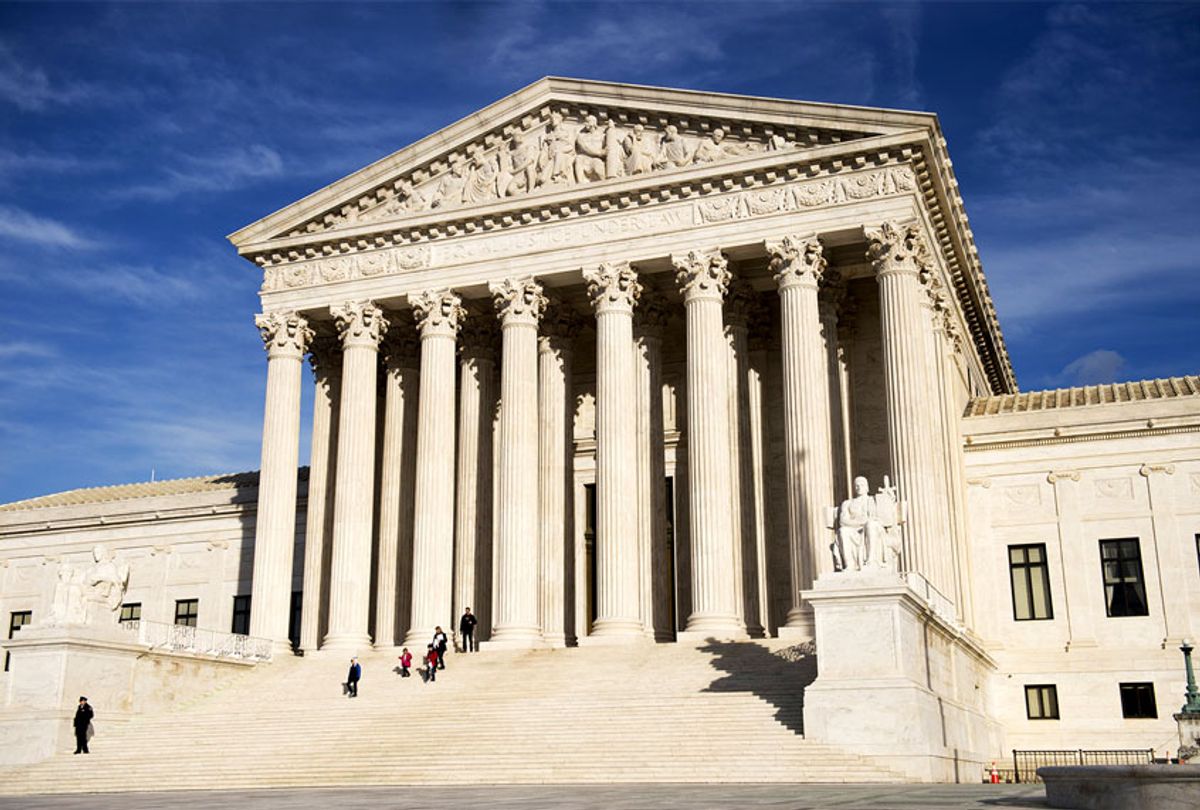In spite of the accelerating pace of global warming, the conservative majority of the Supreme Court dealt a major blow to the Biden administration's attempts to slash emissions through regulatory powers resting in federal agencies. In a 6-3 ruling, the Supreme Court on Thursday struck down the federal government's authority to regulate in areas like climate policy or food and worker safety.
The case, first heard by the Supreme Court back in February, was a lawsuit filed last year by West Virginia Attorney General Patrick Morrisey, who argued that the Environmental Protection Agency (EPA) does not have the power to regulate the state's power plant emissions. At the center of the court's debate was how much regulatory authority is enshrined in the Clean Air Act, a 1963 air quality law designed to reduce pollution. That act, Morrissey and 19 other attorneys general argued, does not grant the EPA the ability to put caps on power plant emissions – a matter which they've otherwise said should be settled by the legislature.
"Today, the court strips the EPA of the power Congress gave it to respond to the most pressing environmental challenge of our time," Justice Elena Kagan wrote in dissent. "The Court appoints itself— instead of Congress or the expert agency— the decision-maker on climate policy. I cannot think of many things more frightening."
Kagan took direct aim at her conservative colleagues, writing, "Whatever else this Court may know about, it does not have a clue about how to address climate change."
RELATED: Trump's EPA allowed Big Agriculture to poison Americans; a court just told them to stop
The case has its roots in the Obama era, when legislators drew from the Clean Air Act (CAA) to enact the Clean Power Plan (CPP), a 2014 policy that put formal limits on greenhouse gas emissions, with the explicit goal of mitigating climate change. At the time, numerous coal companies fired off legal challenges against the law, though a court ordered a stay on the law. In 2017, after withdrawing from the Paris Agreement, Donald Trump ordered the EPA to review the CPP and had the CPP repealed with the Affordable Clean Energy Rule, a watered-down version of the CPP that was ultimately shot down by a federal appeals court. Since then, the Biden administration has not explicitly addressed whether the EPA can put restrictions on power plant emissions.
https://twitter.com/aoc/status/1542509947350446080
Want a daily wrap-up of all the news and commentary Salon has to offer? Subscribe to our morning newsletter, Crash Course.
Historically, the authority to administer restrictions under laws like the CAA and the CPP had been broadly vested in the executive branch through various federal agencies. That authority was affirmed in a ruling handed down by the U.S. Court of Appeals for the District of Columbia Circuit at the beginning of the Biden administration, allowing the EPA to recommend that states use a "best system of emission reduction" as part of the president's push for more renewables.
Last year, President Biden's solicitor general, Elizabeth B. Prelogar, asked the Supreme Court not to intervene on the matter, saying that the administration was "taking into account all relevant considerations, including changes to the electricity sector that have occurred during the last several years." She also assured plaintiffs that Biden would not resurrect the CPP.
But that didn't stop the court from taking up the case. During oral arguments in February, many of the court's justices cited the major question doctrine, which holds that an agency lacks the authority to regulate something that is not directly addressed in statutory law. At the time, Politico reported that the proceeding suggested the court might ax the EPA's broad authority to regulate power plants and punt the issue to Congress.
RELATED: The EPA's West Virginia coal mining smackdown
This decision "could be cataclysmic for modern administrative law," University of Texas School of Law professor Steve Vladeck told CNN.
Election law expert Rick Hassen told The Hill that "An extreme version of the theory would shut down state courts' ability to rein in partisan gerrymandering and protect voters' rights in federal elections." In concurring opinions, Justices Brett Kavanaugh and Samuel Alito appeared to endorse such an extreme move.



Shares